Uzbekistan is committed to a low-carbon strategy, improving energy efficiency and increasing the share of renewable energy sources in the Central Asian country’s energy mix, Uzbekistan’s Energy Minister Alisher Sultanov told New Europe in an exclusive interview.
“Our country, our government and the Ministry of Energy of Uzbekistan take the issues of low-carbon energy strategy, climate change and the reduction of carbon emissions very seriously. In line with the recommendations of the United Nations Climate Change Convention, the government of Uzbekistan is committed to improving energy efficiency and increasing the share of renewable energy sources in the country’s energy mix,” Sultanov said.
He reminded that Uzbek Energy Ministry, together with the European Bank for Reconstruction and Development (EBRD) and international consulting company Mott MacDonald, is working on a comprehensive carbon reduction strategy for Uzbekistan.
“We are aware that the current energy production system in Uzbekistan needs modernization as it has significant potential for improvement and is heavily dependent on natural gas,” Sultanov said, explaining that once developed, this Strategy will help move towards low-carbon forms of energy production, as well as meet rapidly growing energy needs.
He stressed that Uzbekistan is determined to develop alternative energy sources, including solar, hydro and wind, to generate electricity with low carbon emissions. “It is true that we are only at the beginning of this journey, and for our specialists, experts and people in general, this is an interesting and important area where they deepen their knowledge. We look at the best international examples – Germany, China, Spain – and I am confident that sharing this experience will help us succeed in shaping our own path and attracting international investment in this area,” the Uzbek Energy Minister said.
“We recently adopted a ten-year electricity plan for Uzbekistan, developed jointly with the Asian Development Bank and the World Bank. By 2030, this will lead to the creation of additional energy capacity, which will include 5 GW of solar energy, 1.9 GW of hydropower and up to 3 GW of wind power,” Sultanov said.
“The strategy for the transition of the Republic of Uzbekistan to a green economy for the period 2019-2030 was approved by the Decree of the President of the Republic of Uzbekistan dated 04.10.2019,” he said.
According to the Energy Minister, by 2030 Uzbekistan aims to reduce greenhouse gas emissions by 10% from the 2010 level, achieve a twofold increase in energy efficiency indicators and a decrease in the carbon intensity of GDP, further development of renewable energy sources with an increase of up to more than 25% of the total electricity production, diversify energy consumption and develop the use of renewable energy sources, continue its efforts to mitigate the effects of climate change, improve the efficiency of natural resource use and conserve natural ecosystems and develop mechanisms for financial and non-financial support for a green economy.
Sultanov noted that priority areas include the implementation of activities in various sectors of the economy, including electricity, heat, oil and gas, renewable energy sources, construction, transport and much more.
Recently, with the support of the World Bank Group, Abu Dhabi Future Energy Company (Masdar) and the government of Uzbekistan, a project was launched to build the country’s first solar photovoltaic power plant with a capacity of 100 megawatts, Sultanov said, adding that the plant’s 300,000 photovoltaic panels, covering a 268-hectare plot 35 kilometers east of Navoi, are expected to start supplying electricity directly to the national grid later this year. It will generate 260 GWh / year of solar electricity, enough to power more than 31,000 households and prevent 156,000 metric tons of greenhouse gas emissions annually.
Asked if Uzbekistan will be able to achieve carbon neutrality by 2050, Sultanov said, “I think it is premature to say that we will achieve carbon neutrality by 2050 at this stage of economic development. But please ask me this question in 10 years, and I am confident that we can show significant progress starting from where we are now”.
The potential of renewable energy sources (RES) in Uzbekistan is very large. “We have a lot of sun, wind and determination in the development of these directions. Our task is to competently and effectively use all types of renewable energy sources. As mentioned earlier, the government has set a goal to increase the share of renewable energy sources in total electricity production to 25% by 2030, and we are moving in this direction,” the Uzbek Energy Minister told New Europe, noting that many projects for the construction of solar and wind power plants are being implemented with the support of the World Bank, Asian Development Bank, EBRD and foreign direct investment on a competitive basis. IFC is also hired as a lead consultant to help structure and tender for solar projects. “Within 10 years, we plan to build solar parks with a total capacity of 5,000 MW and wind farms with a total capacity of 3,000 MW,” he said.
In addition, the Institute of Solar Energy has been successfully operating in Uzbekistan for several years now and a “road map” for the development of solar energy has been adopted, Sultanov said.
Also, in 2020, within the framework of the Scaling Solar II program, a tender was announced for the construction of two photovoltaic stations with a capacity of 200 MW each – in the Samarkand and Jizzakh regions of Uzbekistan. “Dozens of companies responded to the tender, which indicates the increased interest of investors in these projects, which means that there is confidence that our plans will be implemented. By the end of 2021, two more photovoltaic (solar) power plants of 100 MW each will be commissioned,” he said.
Asked if Uzbekistan is dependent on its Central Asian neighbours and Russia to meet its energy needs, Sultanov said, “We are confident that Uzbekistan is capable of ensuring stable energy security. It is rich in gas, has oil reserves and huge potential for the development of clean energy sources. But very few countries can boast of complete energy independence, and we do not belong to them yet. Today, we maintain mutually beneficial trade relations in the energy sector with our closest neighbours in Central Asia, as well as with Russia and China. The specific nature of these relationships varies with circumstances and is reviewed annually to reflect our current needs”.
Asked if gas will still play an important role in the country’s energy balance, the Uzbek Energy Minister said, “Yes, natural gas provides more than 80% of the country’s primary energy needs. But we are actively moving towards diversifying energy supply. In the next 5 years, as we move forward with the modernization of the power grid, losses of electricity in transmission and distribution will be significantly reduced. We also plan to reduce the consumption of natural gas for energy production from 16.5 to 12.1 billion cubic meters by 2030 and use gas produced domestically for conversion into polymer products, i.e. goods with high added value, for the purpose of their further export”.
Asked about Uzbekistan’s plans to liberalize its energy sector, Sultanov explained that the push for market liberalization of Uzbekistan’s energy sector is part of a series of reforms in the country that began several years ago when the country embarked on a new course of development.
Uzbekistan is currently undergoing a major transformation and privatization program involving the sale of 60 large industrial enterprises, and the sale of shares in more than 400 state-owned companies can be expected in the near future, he said.
“Naturally, the state cannot leave the energy sector completely unregulated, but building business and transparent relations between the state and the private sector is one of our most important tasks. Today there is a favorable situation for expanding the development of market relations in the energy sector of Uzbekistan,” Sultanov said.
“Any serious reforms begin with defining and agreeing on their fundamental principles, and with the help of international consultants, this process is already underway. We are already on the way to creating a free energy market,” he said, adding that the separation of state monopolies is just the beginning. Changes in the regulatory framework have already begun, along with further financial reforms, he said, noting that this will help create clear rules and transparency in the sector.
“I think we are in a good position to implement our energy plans. Uzbekistan already offers good opportunities for oil exploration, development and refining projects,” Sultanov said, adding, “Uzbekistan provides all the necessary conditions for foreign investors when they decide whether to invest in our country”.
By Kostis Geropoulos

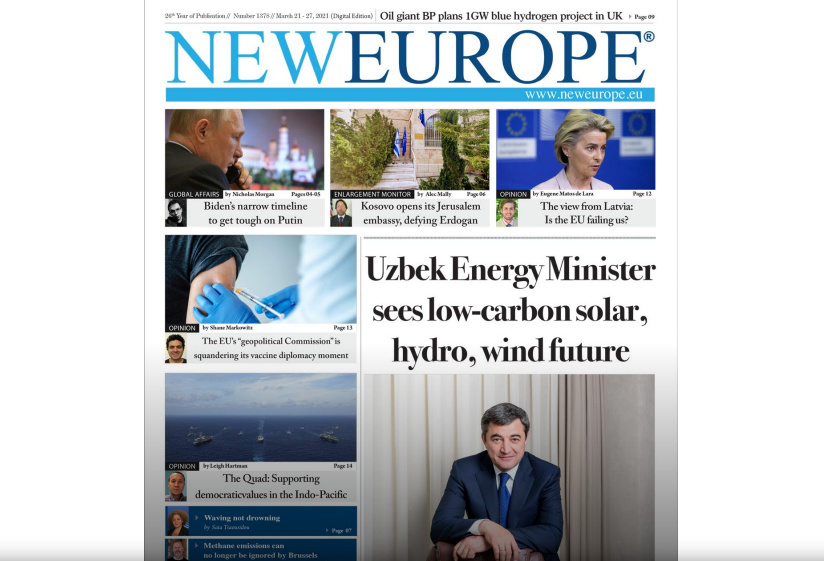
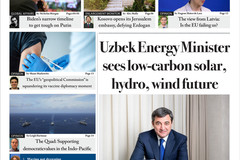
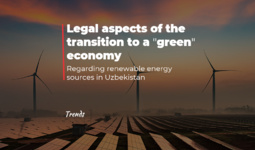

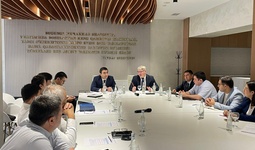
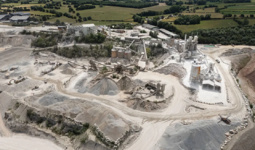
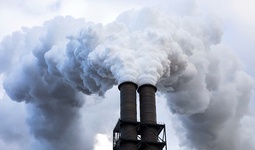
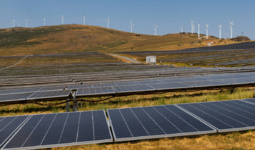













leave a comment